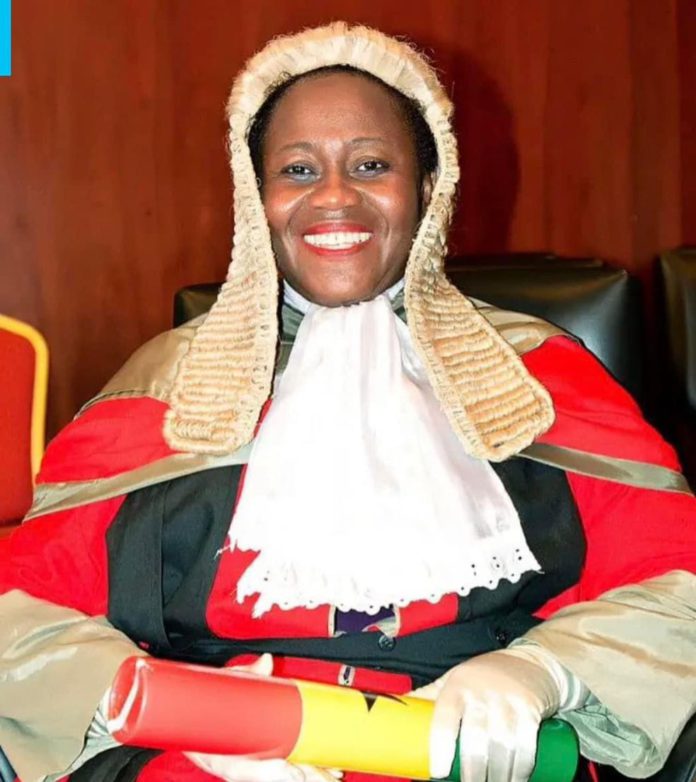Greetings to you wherever you may be given that we are at that time of recuperation, following the completion of yet another legal year.
Despite being the legal holiday, please find herewith my latest suggestions for the improvement of the justice system.
I focus on the role of judges in the whole system.
There can be no doubt that judges occupy an indispensable position; in fact, they are a crucial cog in the whole machinery of justice.
From being the protector and guarantor of individual rights against the overarching and overweening executive power, through being impartial arbiters in disputes, to being the ultimate pronouncers of sentences, their importance, therefore, cannot be underrated.
Relationship
An area, which needs tweaking, in my opinion, is the relationship between the bench and the bar.
That relationship should be one that is underpinned by mutual respect given that both the bench and the bar undergo the same initial training – law degrees and law school.
In my estimation, the mutual respect and tolerance of these two players in adjudication of cases is largely cordial and measures up to international standards.
However, there are situations where visible cracks have appeared as evidenced in some recent high profile cases, which have dented the image of these two players.
It is my prayer that you encourage judges during your regime to uphold these long-standing standards.
In similar vein, I expect the Ghana Bar Association to also instil in their members a high sense of professionalism and inculcate in them the virtue of being courteous, but firm to judges in the course of defending clients.
Abandoning
Moving on, in pontificating the importance of mutual respect and tolerance, I feel I have a duty to ‘rant’ a little over the way the Judicial Service, in some instances, treats lawyers and their clients regarding the issue of abandoning or postponing hearings: lawyers and clients finding out on the day of hearings that a particular court is not sitting.
I concede that such unfortunate situations might occur in genuine emergencies.
However, in this day of technological advancement, (internet, social media, phones), it is unpardonable to only find out on the morning of a hearing that it has been aborted, for example, to cater for workshops etc.
Given that dates for such programmes are known and scheduled in advance, it would be courteous to convey such information to the parties well in advance and to spare them travelling long distances at great discomfort, only to find out that courts are not sitting.
Scheduling
Linked to the above, and closely related, is the issue of scheduling.
Many lawyers and their clients can testify to how they have been scheduled for a specific time yet wait hours for their time in court due to the fact that more than one case has been scheduled for the same time.
Practitioners and their clients alike should be assured of having their cases called at the scheduled time, give or take 10 minutes.
Yet another area where I believe judges have a vital role to play has to do with “equality of arms”, a principle in the trial process within the ambit of the European Court of Human Rights (ECHR).
This means that both sides in a civil or criminal trial must have equal access to the court and the same procedural rights.
Simply put, it requires that there is a fair balance between the opportunities afforded the parties in any litigation.
It has gained prominence in Europe in the context of the fair trial provisions of Article 6 of the ECHR.
In a system, where the vast majority of defendants are unrepresented, it is hoped that judges will ensure that the prosecution does not run rough-shod over the rights of unrepresented defendants.
There is anecdotal evidence that some people are serving time, in some cases lengthy ones at that, for the simple reason that they were unrepresented at trial.
A case I was involved with necessitated the use of an expert witness, i.e. a pathologist.
The prosecution was able to call expert evidence of a pathologist from the Korle Bu Hospital.
Meanwhile, in the absence of legal aid, the defense was not in a position to “instruct” an expert witness to proffer a contrary view.
I daresay, such imbalance could, in some cases, be the main decider – innocent OR guilty.
The writer is a lawyer.
E-mail: georgebshaw1@gmail.com


